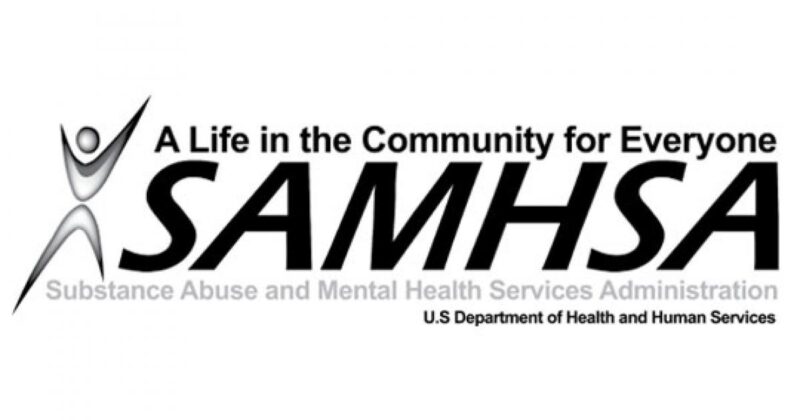The Department of Health and Human Services (HHS), through its Substance Abuse and Mental Health Services Administration (SAMHSA), is announcing awards in five grant programs devoted to combating multiple facets of substance misuse and the nation’s overdose epidemic. The grant awards total up to $47.8 million.
The grant awards facilitate ongoing efforts throughout the nation in prevention, treatment, recovery support and harm reduction – the pillars of the HHS Overdose Prevention Strategy. The Overdose Prevention Strategy helps advance the Biden-Harris Administration’s National Drug Control Strategy, which delivers on the call to action in President Biden’s Unity Agenda for a whole-of-government approach to beat the overdose epidemic.
The five grant programs are:
- Medication-Assisted Treatment-Prescription Drug and Opioid Addiction (MAT-PDOA) Grant Program, distributing 21 awards totaling up to $18.4 million: This program helps expand or enhance access to Medications for Opioid Use Disorder (MOUD). It is expected that this program will help to 1) increase the number of individuals with OUD receiving MOUD; and 2) decrease illicit opioid use and prescription opioid misuse.
- Emergency Department Alternatives to Opioids Demonstration Program, distributing 15 awards and a total of up to $7.4 million: This program develops and implements alternatives to opioids for pain management in hospitals and emergency department (ED) settings. Strategies should include innovative approaches to the management of pain including team-based approaches that could be initiated in ED settings where many individuals with such conditions seek acute care. Those approaches then could be continued in other organizational settings such as primary care or specialty pain management settings.
- Sober Truth on Preventing Underage Drinking Act (STOP Act) program, distributing 50 awards and a total of up to $3 million: This program prevents and reduces alcohol use among youth and young adults ages 12-20 in communities throughout the United States. The program aims to: (1) address norms regarding alcohol use by youth, (2) reduce opportunities for underage drinking, (3) create changes in underage drinking enforcement efforts, (4) address penalties for underage use, and/or (5) reduce negative consequences associated with underage drinking (e.g., motor vehicle crashes, sexual assaults). In addition, awardees will build on strategic plans that were developed under a Drug Free Communities award utilizing the strategic prevention framework model, which aims to address underage drinking behaviors.
- Adult Reentry Program, distributing 34 awards totaling up to $13.6 million: This program expands substance use disorder (SUD) treatment and related recovery and reentry services to sentenced adults in the criminal justice system who have SUDs and/or co-occurring substance use and mental disorders – adults who are returning to their families and community following a period of incarceration in state and local facilities including prisons, jails, or detention centers. Maintaining treatment and recovery during this transition period is crucial to help prevent overdose, particularly for people whose opioid tolerance has decreased as they have received treatment while incarcerated.
- And the State Pilot Grant Program for Treatment for Pregnant and Postpartum Women, distributing six awards that total up to $5.4 million: This program enhances flexibility in the use of funds designed to: 1) support family-based services for pregnant and postpartum women with a primary diagnosis of an SUD, including OUDs; 2) help state substance abuse agencies address the continuum of care, including services provided to pregnant and postpartum women in nonresidential-based settings; and 3) promote a coordinated, effective and efficient state system managed by state substance abuse agencies by encouraging new approaches and models of service delivery.
Anyone in the United States seeking treatment for substance use issues should call SAMHSA’s National Helpline at 800-662-HELP (4357) or visit findtreatment.gov. If you or someone you know is struggling or in crisis, help is available. Call or text 988 or chat at 988lifeline.org. Anyone who needs help knowing what first step to take in pursuing help can find guidance at FindSupport.gov.
Read the full article here.




